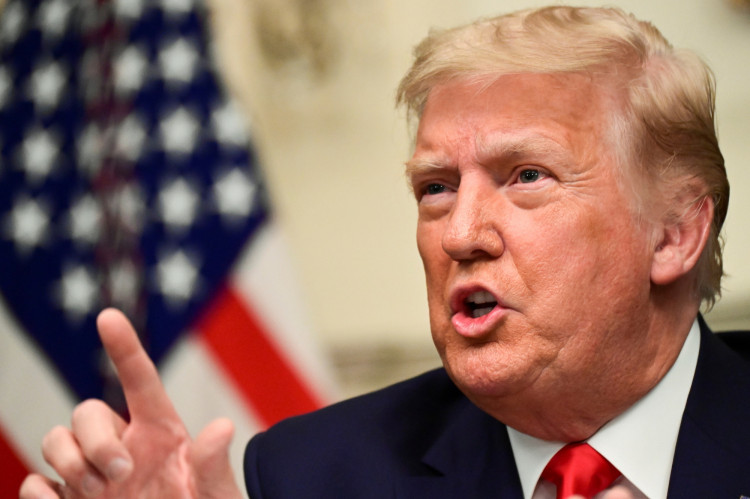In a high-profile case that concluded with former President Donald Trump being found guilty of 34 felony counts for falsifying business records, legal experts argue that the outcome could have been different if not for critical errors by his defense team. The trial, revolving around hush money payments to porn star Stormy Daniels, saw Trump's attorneys deploying a strategy that ultimately backfired, leading to a conviction that many believe was avoidable.
Renato Mariotti, a former federal prosecutor and current partner at Bryan Cave Leighton Paisner in Chicago, outlined in an essay for The New York Times how Trump's legal team mishandled what he termed a "winnable case." According to Mariotti, the defense's approach was a disjointed mix of denials and personal attacks rather than a coherent narrative, which is essential for winning over a jury.
"The defense needs its own story, and in my experience, the side that tells the simpler story at trial usually wins," Mariotti wrote. "Instead of telling a simple story, Mr. Trump's defense was a haphazard cacophony of denials and personal attacks. That may work for a Trump rally or a segment on Fox News, but it doesn't work in a courtroom."
The prosecution's case heavily relied on testimony from Michael Cohen, Trump's former lawyer and fixer, who had a history of legal troubles, including lying to Congress and various fraud charges. While Cohen's credibility was questionable, Mariotti noted that the defense failed to effectively exploit these weaknesses. Instead, they overwhelmed the jury with a barrage of accusations against Cohen, without sufficiently highlighting the lack of direct evidence linking Trump to the falsified records.
"The defense could argue that Mr. Cohen and Allen Weisselberg, the Trump Organization's chief financial officer, who has pleaded guilty to lying under oath and tax fraud, came up with that scheme on their own," Mariotti explained. "Mr. Trump, his lawyers could argue, was focused on his role as president."
However, rather than focusing on the prosecution's weaknesses, Trump's defense opted for an all-out attack on Cohen's character and past misdeeds, dragging the trial out for weeks. This "deny everything" approach not only extended the trial unnecessarily but also diverted attention from the critical points of the case.
Moreover, the defense's decision not to seek a jury instruction that would allow for a misdemeanor conviction instead of a felony further complicated their strategy. This approach left the jury with an all-or-nothing choice, a risky move that did not pay off.
"The defense lost a winnable case by adopting an ill-advised strategy that was right out of Mr. Trump's playbook," Mariotti concluded. "Mr. Trump's team was a reflection of its client, always attacking and never backing down. For this trial and in a Manhattan courtroom, the attitude and strategy backfired."
After the verdict, Trump remained defiant, declaring, "We didn't do a thing wrong. I'm a very innocent man... This was done by the Biden administration in order to wound or hurt an opponent, a political opponent. We'll fight till the end and we'll win, because our country's gone to hell." He is scheduled for sentencing on July 11.
Legal analysts noted that the trial's outcome might have been different with a more focused defense strategy. The defense's overcomplicated narrative and refusal to entertain lesser charges may have alienated jurors who were looking for clarity and reasoned argumentation.
Manhattan District Attorney Alvin Bragg praised the jury's diligence and the prosecution team's efforts. "I did my job. Our job is to follow the facts and the law without fear or favor," Bragg stated, emphasizing the importance of impartial justice.
As Trump prepares to appeal, the trial's fallout continues to reverberate. His conviction marks the first time a former U.S. president has faced such legal consequences, setting a significant precedent. The case also highlights the challenges of translating political strategies into effective courtroom defenses.
In the political arena, reactions were swift and polarized. The Biden campaign issued a statement emphasizing the rule of law, while the White House refrained from commenting. Trump's supporters, meanwhile, echoed his claims of a rigged trial and political persecution, maintaining their steadfast loyalty despite the verdict.






